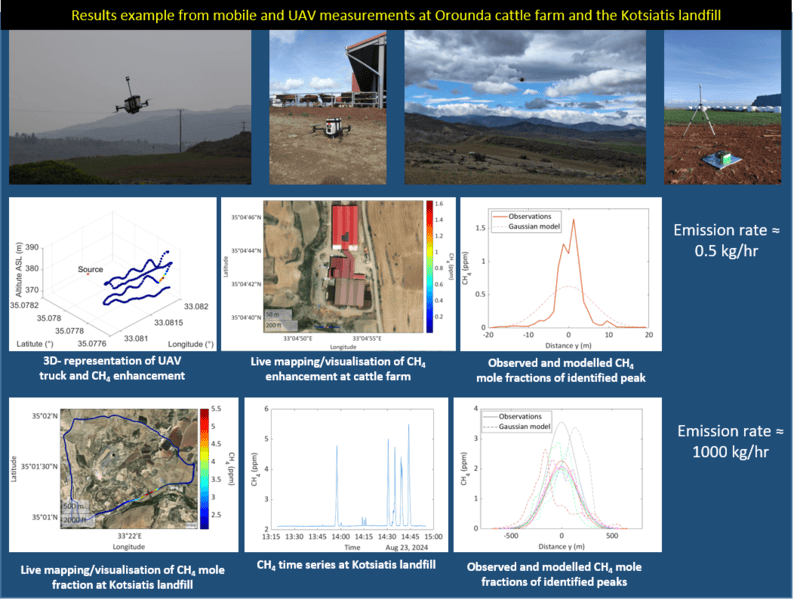
Innovative UAV System for Methane Detection Validated in Cyprus and France by CARE-C researchers
A significant research initiative led by the Climate and Atmosphere Research Center (CARE-C) of the Cyprus Institute has developed and validated a UAV-based system for detecting and quantifying methane (CH₄) emissions. This system utilizes the ABB LGR-ICOS™ UAV-Microportable Analyzer (GLA133-GGA Model), offering a precision of 0.1 ppb. The system integrates advanced sensors for capturing essential parameters for emissions estimation and employs real-time communication for automated operations.
Validation trials of the technology and methodology were conducted at the TotalEnergies Anomaly Detection Initiatives (TADI) test site in Lacq, southwestern France. The TADI campaign conducted from 16 to 20 September 2024 involved forty controlled gas release experiments under varying conditions to evaluate the system’s ability to locate sources and estimate emission rates. The UAV successfully identified methane sources and calculated emission rates using a Gaussian plume inversion model, confirming its reliability and effectiveness.
Following these tests, the system was deployed at the Kotsiatis landfill and a cattle farm in Orounda, Cyprus, to evaluate its performance in real-world scenarios. These field deployments demonstrated the system’s ability to quantify methane emissions from diverse sources, highlighting its practical application and versatility in addressing global methane monitoring challenges.



Some test flights of the system were funded by Lidl Cyprus, within the context of the company’s Corporate Social Responsibility programme.



